Montreal Canadiens general manager Marc Bergevin doesn’t need to look far for advice as to how to proceed this upcoming trade deadline. In fact, having served as Habs GM since 2012, he can look back on his own experiences… and hopefully learn from past mistakes.
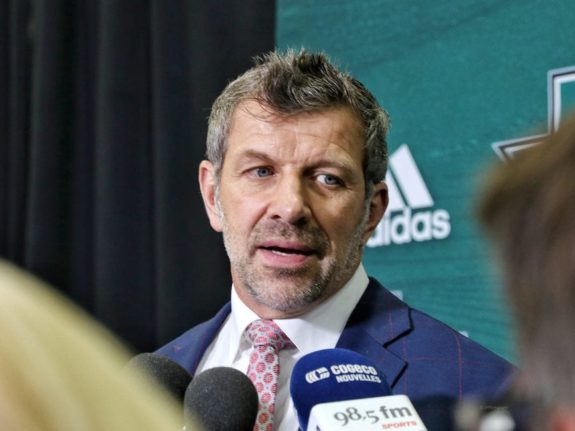
If all that fails, Bergevin need only look back to a few weeks ago when he said he wouldn’t be in the rental business. Considering the Canadiens are just one season removed from a fourth-from-last-place finish and plenty of holes in the lineup remain, wiser words have rarely been spoken. Hopefully, he heeds his own advice.
Here are the top lessons Bergevin can learn ahead of the Feb. 25 trade deadline:
5. Fire Sales Are Your Friend
It kind of goes without saying, but sometimes it’s not as much about negotiating as it is about licking the bone clean. Desperation and dysfunctional management situations are to be preyed upon, not pitied. Bergevin should know that more than anyone, because several times now he’s played the role of hunter to perfection, and that’s just in reference to deals made at past deadlines.
In 2014, he got Thomas Vanek from New York Islanders GM Garth Snow effectively for prospect Sebastian Collberg, who has yet to play a single NHL game to this day. Vanek meanwhile contributed to a memorable run to the third round that spring, albeit with diminishing returns as the playoffs went on.
In 2015, Bergevin absolutely stole all-star-caliber-defenseman Jeff Petry from the Edmonton Oilers for a pair of picks. Those turned into prospects Jonas Siegenthaler and Caleb Jones, but, considering how Petry was eventually signed long term and, more recently, successfully stepped up in Shea Weber’s absence, it’s hard to find fault with the trade.
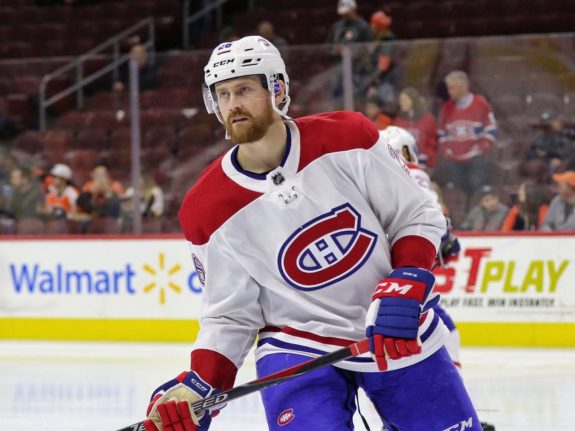
Even in the role of a seller, as Bergevin was in 2016, he was able to rip off Chicago Blackhawks GM Stan Bowman. He acquired Phillip Danault and a second-round pick for Dale Weise and Tomas Fleischmann, proving sometimes a deal is just too good to pass up, especially when the Habs would have lost both pending unrestricted free agents for nothing. So, while Bergevin would do well to avoid getting into a bidding war, he can still come out a winner should the right situation present itself.
4. You Never Know What You’ve Got Until Dubnyk’s Gone
While few could have predicted the Danault deal would have turned out as well as it did, the Canadiens had nothing to lose by making it. It was a similar situation when they acquired then-struggling-goalie Devan Dubnyk in 2014 from the Nashville Predators for future considerations.
Many considered Dubnyk washed up and for good reason. He fell out of favor with the Oilers, who proceeded to trade him to the Predators, with whom Dubnyk played even worse. He ended up playing for the Hamilton Bulldogs in the American Hockey League for the Canadiens, failing to see the ice with the big-league club at all.
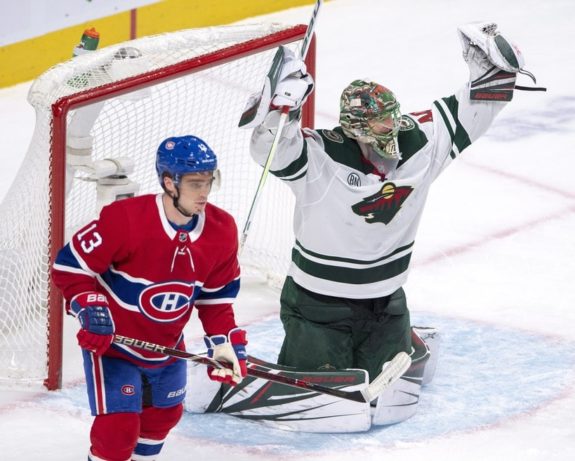
In fact, despite being a black ace with the Habs during their playoff run, Dubnyk requested to leave early to be with his family following a campaign to forget. They granted him his wish and he left that season in the rear-view before rebounding with the Arizona Coyotes the following season, which facilitated a trade to the Minnesota Wild. The rest, including a Vezina Trophy nomination that same year, when Carey Price ended up winning his, is history.
3. A Better Backup Plan than Niemi
Ideally, the Canadiens would have found some way to parlay Dubnyk into a haul worthy of his talents, instead of letting him walk for nothing. So, patience is key under certain circumstances, especially with players who can still develop into stars.
It’s of course unlikely Dubnyk would have panned out with the Canadiens like he eventually did with the Wild, as one of the most dependable starters in the league. He would have had to play under Price under a best-case scenario, but it’s been increasingly rare for the Habs to find a dependable goalie on whom they can rely year in, year out, to back up Price.
To illustrate that fact, patience is something they don’t need to observe with regard to 35-year-old-backup-goalie Antti Niemi, though. He’s developed as much as he can and is for all intents and purposes on his way out of the NHL. While Niemi has been getting the job done playing behind Price, it hasn’t exactly been pretty with an .894 save percentage and 3.66 goals-against average, numbers that can’t exactly instill confidence.
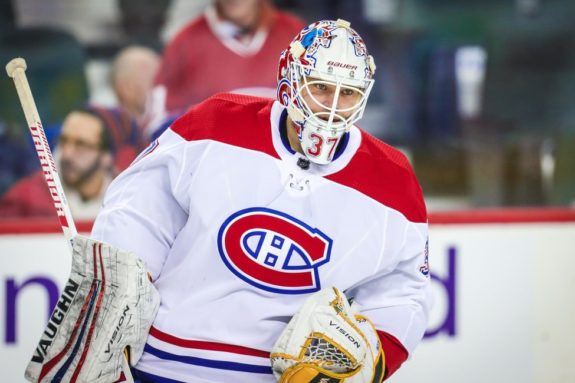
There’s no denying the Habs need to ride Price come the playoffs, but it’s impossible these days for a goalie to steal four rounds. A backup has actually come on in relief of an undisputed No. 1 on several occasions and gone on to win a Stanley Cup (like Cam Ward of the Carolina Hurricanes in 2006).
Price certainly has never stolen four rounds and, both times he’s made it to the Eastern Conference Final, another goalie actually ended up playing the last Canadiens game of the season. That would of course be Jaroslav Halak in 2010 and Dustin Tokarski in 2014.
Forget the possibility of a backup stealing away the No. 1 job from Price during the playoffs if you wish. Don’t dare discount the possibility that Price gets injured at some point during a playoff run, as he’s failed to finish the season on four separate occasions since he wrested the job away from Halak for good.
Coincidentally, Tokarski had been acquired in the lead-up to the 2013 trade deadline. Even if he did come through for the Habs a season later with solid play down the stretch, it’s easy to imagine that performance being just a flash in the pan and something a current goalie in the system would be incapable of reproducing, Niemi specifically. In other words, the Habs need a good backup plan or at least a better one than Niemi.
2. No Size Without Skill
Consider this a direct reference to the failure that was Bergevin’s 2017 deadline. He got Andreas Martinsen, Dwight King and Steve Ott for a lengthy playoff run that never materialized. While it’s hard to pin the first-round upset loss to the New York Rangers on either one of them (the whole team lost lackadaisically), they certainly didn’t help matters.
In this specific case, the Canadiens didn’t theoretically lose much. They gave up Sven Andrighetto to the Colorado Avalanche for Martinsen, a conditional fourth-round pick to the Los Angeles Kings for King (which they eventually re-acquired; Allan McShane) and a sixth-round pick to the Detroit Red Wings for Ott (Tim Berni).
It’s more so the opportunity cost the Canadiens suffered by playing a bunch of guys known more for the hits they throw than the goals they score. In the cases of Ott and King, they were past their best-before dates, while Martinsen may not have even had a good-before date. Size is fine, but acquiring it without skill is just shooting yourself in the foot. Doubly so if you give up something valuable in exchange.
1. Every Pick Is Valuable
If there’s one player on the trading block that might have enticed Bergevin it would have probably been Jake Muzzin, who was just traded to the Maple Leafs for two non-blue-chip prospects and a first-round draft pick.
It was a reasonable price to pay for a top-four, left-handed defenseman, which is exactly what the Canadiens need. The only caveat is Muzzin’s contract ends at the end of next season.
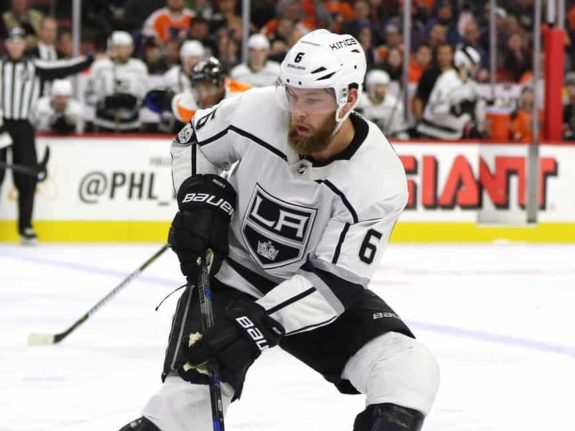
It wouldn’t have been a rental on the part of Bergevin as a result per se. It’s nevertheless hard to imagine the Canadiens would be able to legitimately contend for the Stanley Cup in the time frame prescribed by such a hypothetical trade. Even if the Habs were to re-sign Muzzin (in this scenario), there’s a good chance the 30-year-old would be in decline for a good portion of the subsequent deal in question. In other words, Bergevin is right when he opines out loud that he shouldn’t be in the rental business, especially this season.
By the time the Canadiens may be ready to contend, any picks or prospects going the other way may be in the process of developing into stars. Considering Bergevin’s general success rate at drafting, it’s not really a risk worth taking. From the point at which Bergevin was hired until the 2016 NHL Entry Draft, he’s made 32 picks. Eleven of those have played at least one NHL game. Each of those 11 have played more games for the Habs than a rental would during a playoff run. That’s a pretty decent clip.
Granted, not all of those 11 will pan out, but for every Nathan Beaulieu there’s another team willing to take a chance on him for potentially another pick. For every first-round pick used on Alex Galchenyuk that could have been dealt in exchange for Muzzin, there’s a Max Domi to be had if they play their cards right. Meanwhile, you can’t really trade a rental. So, big picture, picks are simply more valuable. There’s little denying that.
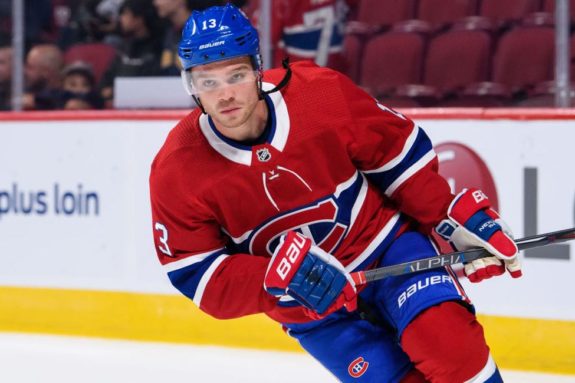
The argument could be that a rental either works out or it doesn’t, making it a one-in-two chance instead of the one-in-three drafting gives the Canadiens. However, it’s much less than 50% seeing as only one team wins the Stanley Cup. What constitutes a success under those circumstances? Probably not winning just a single round. You’d have to get pretty far.
The Canadiens don’t seem to be in a position to. Of course, few thought they would be in a position to compete for a playoff spot and here we are, at a crossroads. No one really knows what the future holds for this team, not even Bergevin, but taking these lessons to heart, he can at least get some idea as to what works and what won’t. Whatever he ends up doing, there will inevitably be second-guessing on the part of fans. As long as he doesn’t second-guess himself or his plan heading in, the Habs should be all right.